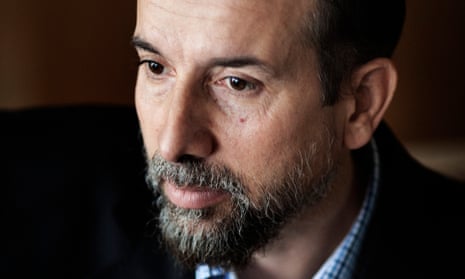GCHQ, Britain’s national security surveillance agency, has been ordered to destroy legally privileged communications it unlawfully collected from a Libyan rendition victim.
The ruling marks the first time in its 15-year history that the investigatory powers tribunal has upheld a specific complaint against the intelligence services, lawyers have said. It is also the first time the tribunal has ordered a security service to give up surveillance material.
The IPT says GCHQ must destroy two documents which are legally privileged communications belonging to a former opponent of the Gaddafi regime, Sami al-Saadi, who was sent back to Libya in 2004 in a joint MI6-CIA “rendition” operation with his wife and four children under 12.
The tribunal, chaired by Mr Justice Burton, ruled that GCHQ must give an undertaking that parts of those documents must be “destroyed or deleted so as to render such information inaccessible to the agency in the future”. The agency has to submit a secret report within 14 days confirming that the destruction has been carried out.
GCHQ has also been ordered to hand over a hard copy of the papers to the interception of communications commissioner within seven days. They will be kept safe for five years in case there are further legal proceedings or an inquiry.
The tribunal says that although the two documents contain information covered by legal privilege they did not disclose or refer to any legal advice: “The tribunal, after careful consideration, is [also] satisfied that there was no use or disclosure of the privileged information for the purpose of defending the civil claim brought by [Saadi] and others.”
This is a compensation claim against Jack Straw, the then foreign secretary, and the Foreign Office, being brought by Saadi along with another prominent opponent of Gaddafi, Abdel Hakim Belhaj and his family, for their role in their rendition and subsequent torture in Libya in 2004.
The tribunal said that it would not order compensation in this case as the material involved had not been disclosed to any lawyer or policy officials working on the main case and was of no significant value.
The tribunal made a “no determination” ruling in eight other claims brought by Belhaj and other members of the Saadi family that legally privileged material had been unlawfully accessed by GCHQ involving their rendition cases.
In February, the government, anticipating this ruling, admitted that the policies and procedures governing the handling of legally privileged material had been unlawful for the past five years because they had not made public safeguards necessary to make them compliant with human rights legislation. Exchanges between lawyers and their clients enjoy a special level of legal protection.
The judges declined to award compensation to Saadi, saying the declaration in February and the determination was sufficient satisfaction for those who brought the case.
They also rejected a request that the material be handed over to them rather than destroyed, saying such a move might give an indication of how GCHQ obtained the information in the first place or enable those who were legitimate surveillance targets to take counter-measures.
Cori Crider, of the campaign group Reprieve and counsel to the Saadi and Belhaj families, said: “GCHQ spied on privileged legal communications in a case where they were being sued by a rendition and torture victim. We are pleased that one man has finally beaten the security services in this secretive tribunal. But this kind of illegal snooping makes phone hacking look like child’s play, because it rigs the whole justice game in the government’s favour.
“It’s also inconceivable that Mr al-Saadi was spied on while Mr Belhaj was not. I confess I find this part of the IPT’s decision very difficult to make sense of.”
Saadi said: “I am glad to be the first person to win against the spies in this tribunal. I had always been told I had a right to communicate with my lawyers about this torture case in private, but that clearly wasn’t the case. This was illegal behavior and I hope now that the right to take legal advice in private will never be ignored again.”
A government spokesman said: “The government welcomes the tribunal’s confirmation today that the intelligence agencies did not seek or gain any advantage in legal proceedings, nor held information referring to any legal advice relating to the claimants.
“The government published a revised code of practice in February 2015 to provide increased safeguards for handling legally privileged material. The agencies are working with the interception of communications commissioner to ensure that their policies meet the required standard.”
Crider said the decision represented a further encroachment on the security services’ secrecy doctrine of “neither confirming, nor denying” their activities: “It blows the government’s ‘neither confirm nor deny’ position out of the water,” she said.
“The tribunal have told Mr Al-Saadi that he was subject to spying, and it was illegal, in public. It adopts the sensible approach that whilst some spying operations may need to be kept secret, there is no good reason to hide unlawful conduct, which must be exposed.”
